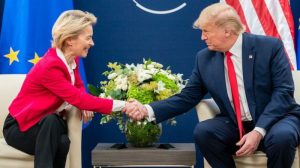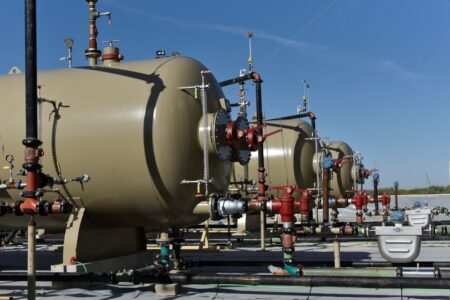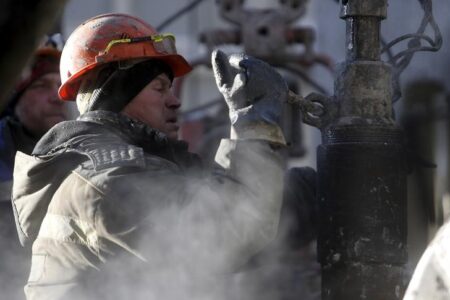By Andrea Shalal and Jeff Mason
WASHINGTON (Reuters) -U.S. and European Union trade negotiators failed to reach deals to settle longstanding trade disputes in the run-up to a summit at the White House on Friday, but Washington agreed to continue providing some relief from tariffs on steel and aluminum, with talks set to continue.
Senior U.S. administration officials said more work was needed to seal an agreement.
President Joe Biden hosted European Council President Charles Michel and European Commission chief Ursula von der Leyen for a meeting at the White House even as differences from longstanding trade disputes remained.
The leaders discussed the wars between Israel and Hamas as well as Ukraine and Russia.
Biden noted that the EU and the United States were standing together to support Israel and Ukraine. He noted the steel and aluminum issue in remarks at the beginning of the meeting and negotiations about critical minerals.
“Sometimes we have our differences,” Michel said. “That’s why we are here: to cooperate, to find solutions that work for businesses and workers.”
Trade negotiators scrambled on Thursday to avoid the U.S. resuming import tariffs on EU steel and aluminum imposed by then-President Donald Trump in 2018 before November.
“We are committed to continuing the work on the Global Arrangement with the EU in the months ahead,” a senior U.S. administration official said about the talks, adding that the United States would roll over tariff rate quotes, or TRQs, by the end of the year if more time for talks was needed.
“We are committed to providing certainty to our industry and workers and to our EU partners,” the official said.
The move staves off the resumption of Trump-era tariffs on EU-produced steel and aluminum that the Biden administration had agreed to halt in exchange for a quota system, but it was unclear how long a reprieve would be granted.
The Biden administration suspended tariffs on EU steel and aluminum imports on the condition that both sides agree by the end of this month on measures to address overcapacity in non-market economies such as China, and to promote greener steel.
A second official said the two sides had made good progress, but more work was needed to finalize an agreement. There was no discussion of reinstating – or snapping back – the Trump-era “national security” tariffs on steel and aluminum, the official said. “That is not on the table.”
Any deal seems far off, with Washington keen that the EU apply the metal tariffs to imports from China and Brussels refusing to do so before a year-long investigation to comply with World Trade Organization rules.
The priority was to continue talks for the next two months before the tariff relief expired at the end of the year, a source familiar with the discussions said. The duration of a second period of tariff relief was not decided, but could be as long as two years. Getting the work done in 2024 could be challenging, given EU elections in early June and U.S. elections in November.
Also elusive appeared a deal to lessen the hit from the U.S. Inflation Reduction Act, which offers consumers tax breaks to buy electric vehicles (EVs) assembled in North America.
The Israel-Hamas war, and a looming ground offensive by Israel into Gaza were likely to dominate the discussions, von der Leyen said earlier in Washington, warning about the risk of “regional spillover” from the conflict.
(Reporting Andrea Shalal and Jeff Mason; additional reporting by Jarrett Renshaw; Editing by Heather Timmons, Jonathan Oatis and Alistair Bell)
Read the full article here












